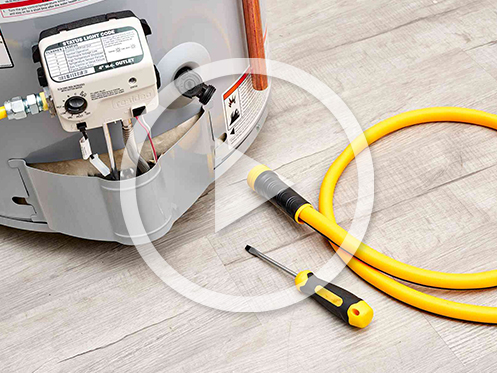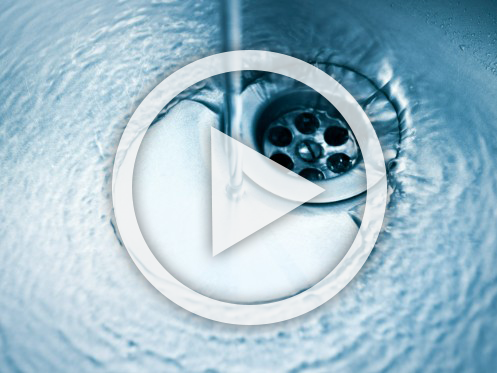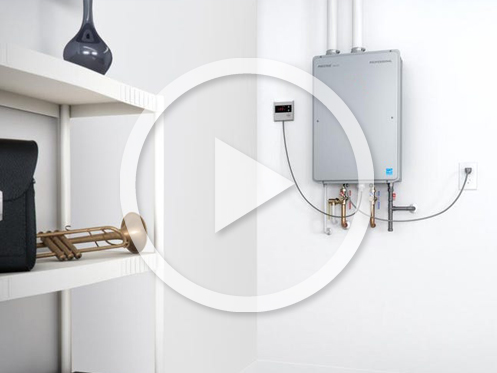Updated January 22, 2024
If your old water heater needs to be replaced, upgrading to a tankless water heater can be a fantastic choice. Although they require a more significant upfront investment, tankless water heaters have many advantages over traditional tank-style units. One of the most important advantages is that tankless units typically have a far greater life expectancy than any other type of water heater. Here is an overview of how long tankless water heaters should last and why they’re such a great choice.
Typical Lifespan for Tankless Water Heaters
A tank water heater will usually last between eight and 15 years at the very most, depending on whether the unit is gas or electric. Gas units generally have the shortest lifespan, as they tend to have more issues with the tank corroding and beginning to leak.
Whether you opt for a gas or electric tankless water heater, it will likely last for years longer than any other unit. On average, a new tankless water heater should last for a minimum of 20 years, and it is not uncommon to find units that still function effectively for 25 to even 30 years or more.
As with any other appliance, there is a chance that your tankless water heater could fail prematurely. However, the risk is still negligible since tankless units have fewer components so that fewer things could malfunction.
Another advantage is that tankless water heaters have better warranties than tank units. A new gas or electric tank water heater will typically only be under warranty for five years, and this warranty may not coverunit’sf cover unit components. On the other hand, most tankless units will have a 10-year warranty on the exchangers and up to a five-year warranty on all the different elements.
How Maintenance Helps to ProtHeater’ster Heater’s Lifespan
Another advantage of tankless water heaters is that they tend to be less maintenance-intensive than tank units. Having your tankless unit inspected by a plumber every year is still a good idea. It has no issues that could lead to increased energy usage, decreased effectiveness, or potentially lead to the unit breaking down. Nonetheless, weave near the number of maintenance tasks with a tankless unit.
The main thing you need to do is have the unit flushed and cleaned every year or two. However, if your home has hard water, you may want to have the unit cleaned every six to nine months. Flushing and cleaning prevent mineral deposits and limescale from building up on the heat exchanger and other components.
All tankless water heaters use a heat exchanger that is similar to that used by a furnace. The metal heat exchanger absorbs heat from the gas burner or the electric resistance coil and becomes extremely hot in just a few seconds. Cold water then flows over the metal exchanger, and the heat energy is transferred to the water to make it hot instantly.
Even if your home has relatively soft water, it contains some dissolved minerals. As water flows through the unit, some of these minerals will be left behind and form a hard scale that can start to coat the heat exchanger. This can eventually lead to issues with the unit not heating correctly, as the mineral deposits will insulate the heat exchanger and prevent the water from coming into direct contact with the metal.
As a result, much less heat will be transferred to the water, which means it won’t heat as quickly, and the unit will use more energy. While this may not sound like a big deal, limescale deposits can increase the unit’s power by 30% or more.
Regular cleaning is essential because it prevents limescale build-up while ensuring the unit continues functioning effectively and efficiently. If you neglect to have the unit cleaned and descaled, the limescale can build up to the point where your only real option is replacing the heat exchanger. Unfortunately, this is not the case this would be covered under warranty since the problem is the problem of a defect but instead due to neglect or lack of maintenance.
Why Tankless Water Heaters Are Such a Great Choice
In addition to having a longer lifespan and fewer maintenance requirements, tankless water heaters have several advantages over tank units. One important thing to consider is that tankless units are much more energy efficient, and the increased energy savings can go a long way toward offsetting the higher initial cost.
Your average hot water usage depends on how much you can save with a tankless unit. The savings will always be most significant if you use less than 40 gallons of hot water on average daily. In this case, a tankless water heater could cut your energy costs by 40% or more. Even if you typically use more than 80 gallons daily, you should save 10% or more on energy costs compared to a tank water heater.
Of course, this also depends on whether you opt for a gas or electric tankless unit. Electric units will always be a bit more efficient. However, they are also a bit more expensive since natural gas is usually cheaper than electricity.
Another great thing about tankless units is that you won’t worry as much about the unit suddenly having a significant leak and flooding the surroundings. Surrounding isn’t saying that a tenant’s unit can’t leak, as there is always the potential for leaking with any plumbing fixture. Nonetheless, you must worry about a tankless unit failing and sending tens of gallons of water rushing out as you do with tank units.
Tankless wadon’teaters don’t store water, which means you can use as much hot water as you want without worrying about running; yout, you could quickly run with a ton of unit water after only two or three showers. In this case, you may need to wait anywhere from 30 minutes to two hours before your water gets hot again.
Expert Plumbing and Home you’re
If you want to upgrade your home with a high-efficiency tankless water heater or your current water heater needs to be serviced or repaired, Golden Rule is here to help. We install and service both tankless and tank units and offer professional drain cleaning, leak repair, and a full range of other residential plumbing services. We pride ourselves on reliability, and more than 99% of all calls we receive are serviced that same day. Our company has been serving customers in the metro area for more than 25 years, and we are ready to take care of any of your plumbing, electrical, or HVAC needs. For more information on the advantages a tankless water heater can provide for your home, call us today.
Contact Us Today for Plumbing Service!
If you found this post helpful, check out some other budget-saving tips:



